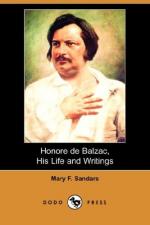|
This section contains 18,042 words (approx. 61 pages at 300 words per page) |

|
SOURCE: Thiher, Allen. “Balzac and the Unity of Knowledge.” In Fiction Rivals Science: The French Novel from Balzac to Proust, pp. 37-80. Columbia: University of Missouri Press, 2001.
In the following essay, Thiher claims that Balzac transformed the novel from philosophical allegory to a discussion about the nature of knowledge, and explores the author's attempt to offer a reality in his novel that would compete with the supposed total truths posited by scientific discourse.
Qui ne pardonnerait ce dernier plaisir à un homme de science et de poésie?
[Who would not forgive a man of science and poetry for this last pleasure?]
—Balzac, La Peau de chagrin
Historical Overview
| 1778: | Mesmer arrives in Paris with his medical theory based upon animal magnetism, sometimes viewed as the precursor to psychotherapy. |
| 1785: | Coulomb publishes his research on the inverse square laws of electrical and magnetic attraction. |
| 1789: | After several years of research that included... |
|
This section contains 18,042 words (approx. 61 pages at 300 words per page) |

|


